To change perceptions of what is possible, it takes imagination, grit, and a mindset that says “why not?” These are qualities one finds in visionaries who challenge existing concepts of what is appropriate and pioneer what will come to be seen as the new normal. In 1967, Kathrine was the very first woman to run the Boston Marathon as an officially registered competitor. During her run, an enraged race manager assaulted Switzer, trying to grab her bib number and stop her from competing, solely for her audacity to run a race considered impossible for a woman. She single-handedly changed women’s competitive sports.
We humans learn by seeing in others what is possible. We have the ability to see a novel accomplishment in one area of endeavor, and then transpose it onto another. So in 1967, when the world saw Kathrine run the Boston Marathon, the collective imagination was sparked to ask: What else can a female athlete, a female creator, a female leader accomplish? Yes, gender parity after all these years is not yet where it could be, and Kathrine is part of a long chain of groundbreaking women, but because what she did was so radical, and so visible, it moved the needle.
The earlier misconceptions around gender are not dissimilar to those around age. Kathrine, now 74, is pushing against both of those stigmas, with her continued leadership and encouragement to a better understanding of what is possible and desirable. To her, in 1967, it was completely normal to, after some training, run the world’s most famous 26-mile race. To others, it was clearly disruptive to the status quo. For the people we feature here in AGEIST, their way of living is just as normal to them, although to others it may seem radical and disruptive. As science is pushing the envelope of longer healthspans and life spans, we will need collectively move our imaginations of what is possible and what will become normal.
What is your age?
74.
Where are you living?
Wellington, New Zealand.
“We use running as a vehicle to empower and unite women”
What is the 261 Fearless organization?
261 Fearless Inc. is a global non-profit organization. We use running as a vehicle to empower and unite women through the creation of local non-competitive running clubs, education programs, communication platforms, and social running events. We aim to break down the barriers of geography and create a global community for women runners of all abilities to support, encourage, and inspire each other towards a positive sense of self and fearlessness. 261 Fearless Clubs can be found currently on five continents.
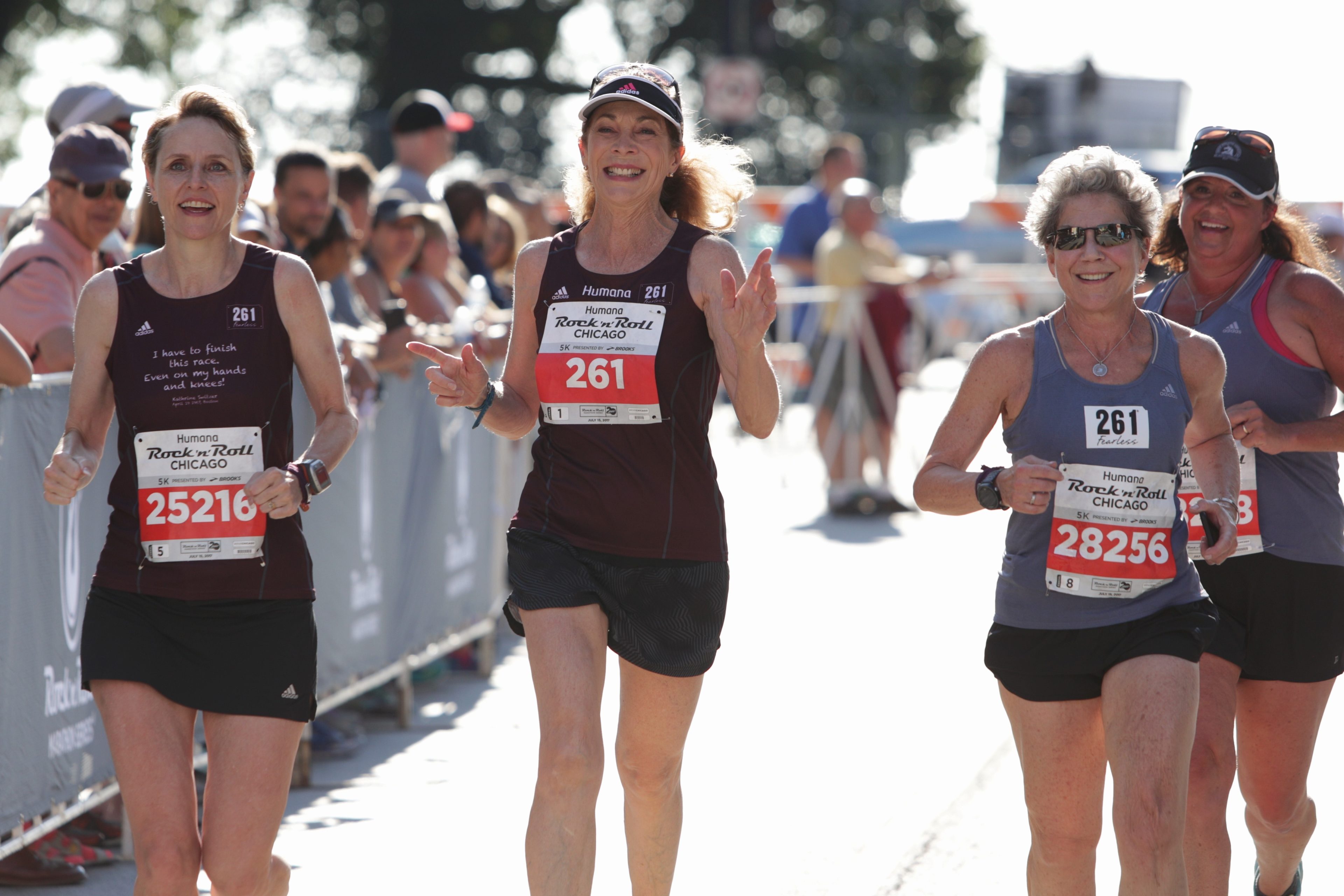
What is it that non-runners need to know about running?
That running is easy, cheap, and totally accessible — no gym, no golf membership — and it can take you around the world with all kinds of friends and, most importantly, that it is the healthiest thing you can do for longevity — prevent heart attacks, stroke, increases bone density and amps up your sex life.
“Women are natural endurance athletes”
What are the advantages women have in running long distances?
Women are natural endurance athletes. We don’t have the speed and power of men, but we have more endurance, stamina, flexibility, and balance. Plus we have fat stores men don’t have, which is a fuel source, and therefore we can go longer, not get cold, and not get hungry.
I have read that women are now the majority of runners in long-distance races. Why do you think that is?
For all of the above reasons and also because we’re naturally good at endurance, and that running transforms women — it gives them self-esteem, confidence, and a sense of empowerment and fearlessness. When you complete a long race — say, a marathon — you know you can do anything. For thousands of years, women have mostly never had that sense of self-power.
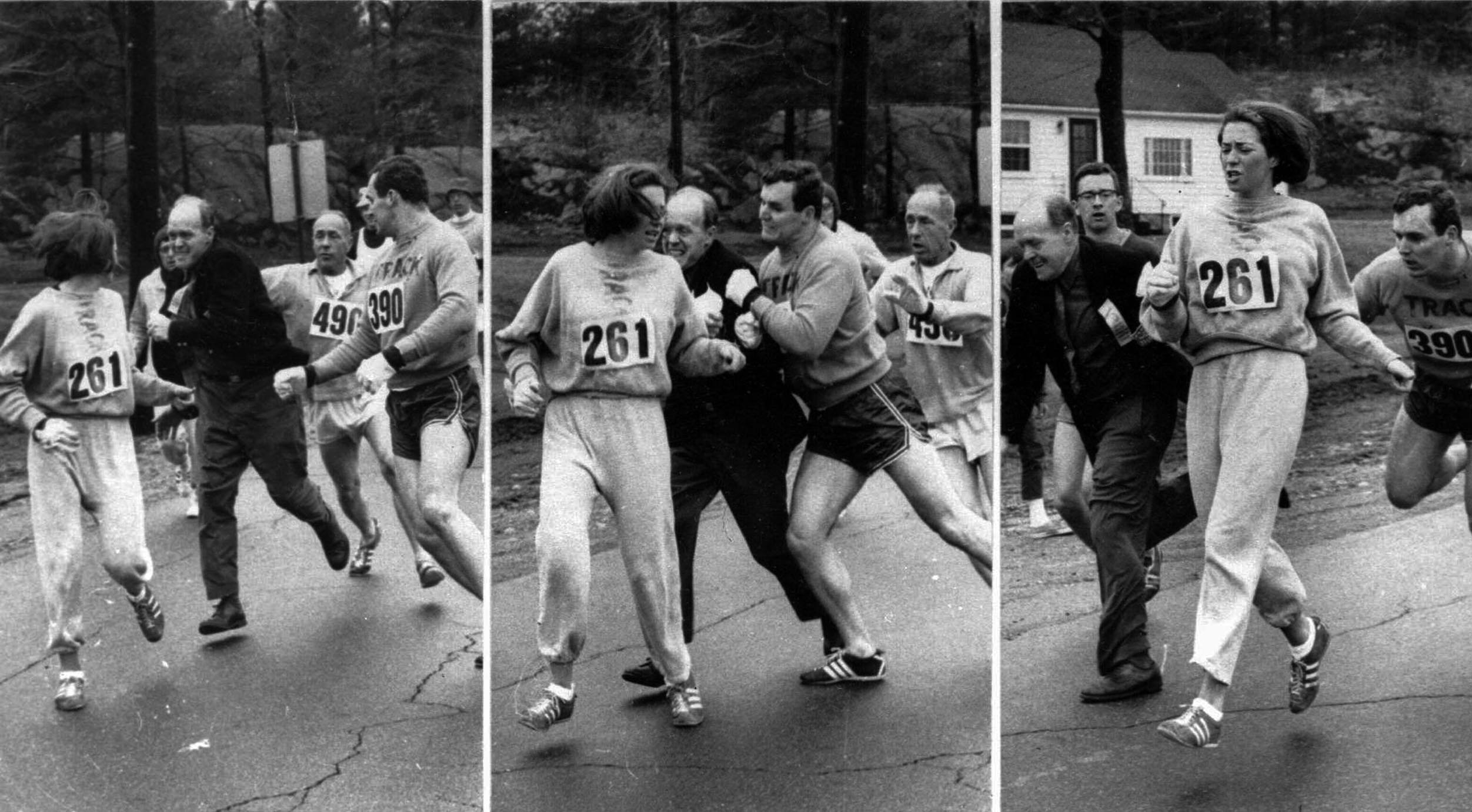
With your run-walk program, how do you help others start to become runners?
You begin with a single step in a safe, fun, and non-judgmental community. Eventually women walk or run their first mile, then they know maybe they can do 2, and on and on. With a group once a week they get reinforcement. Pretty soon they realize they can accomplish things they never before imagined.
How does one stay motivated to run, no matter what the weather conditions are?
Easy. You always feel better after a run than you do before you start. Everyone knows that getting your shoes on and stepping out the door is the only hard part. When you come back from a run in bad conditions, you feel like you just conquered the world and you know nothing else in the day can take that feeling away from you.
You expanded our imagination of what was thought possible. How does one change one’s own limitations on what is possible?
Start with taking the first step. Maybe it’s just walking out to the mailbox once a day. Then twice a day, then around the block…The capacity of human achievement is limitless, and when you experience it with yourself, you will find it fascinating, thrilling, and life-changing.
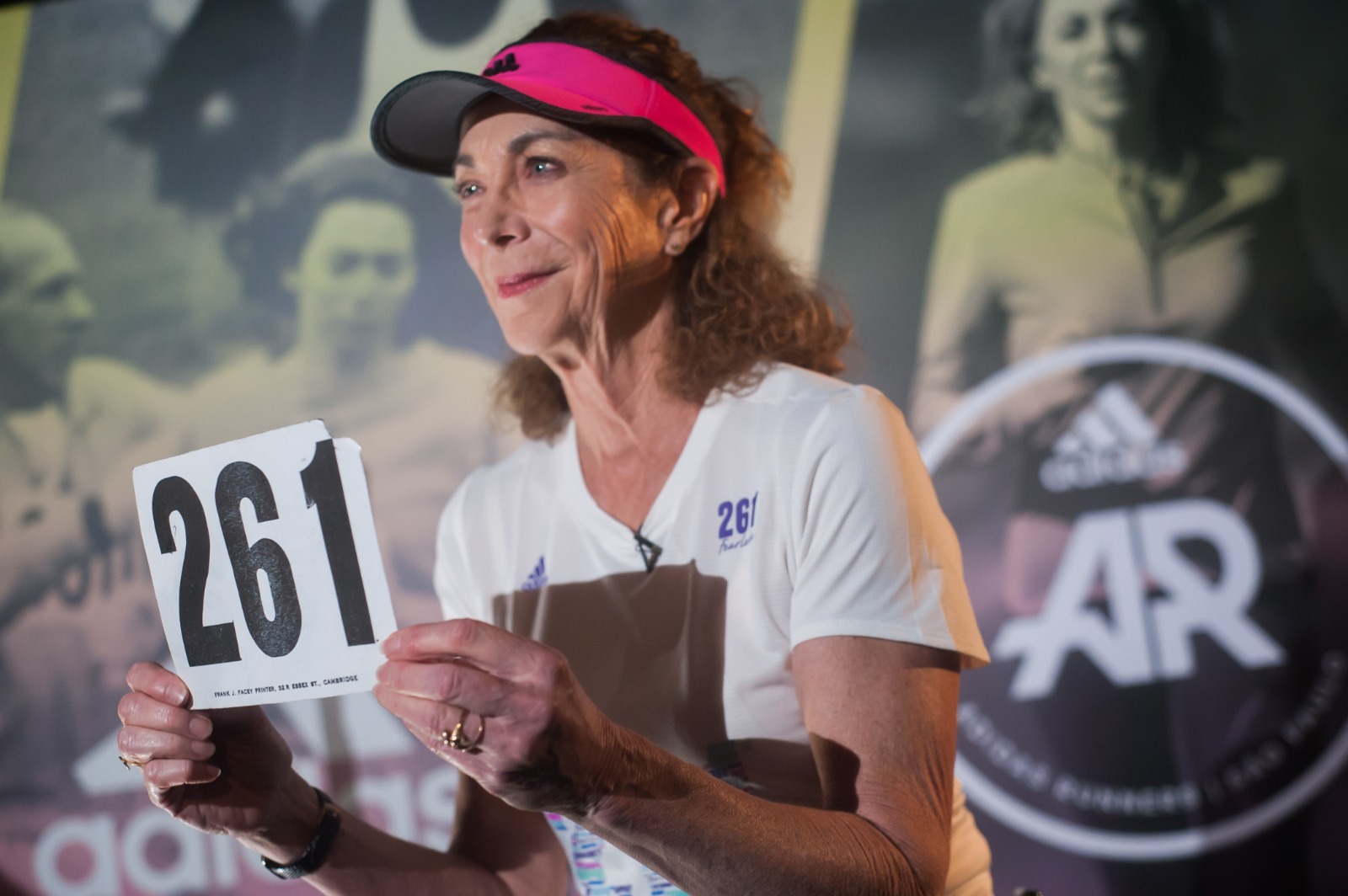
People our age are often told “you can’t do this,” whatever that is, “at a certain age.” How would you respond to that?
I laugh and say, I’ve started BEGINNERS running at 65, 70, 80…you’re never too old, big, slow to start. The body always wants to move; the body always wants to improve. Besides, the body is growing every day — new bones, new blood, new eyes, new muscles, etc. — so get started now to build it better.
“I’ve started BEGINNERS running at 65, 70, 80…you’re never too old, big, slow to start”
What are the benefits people get from volunteering?
Huge appreciation. And, all of us know that the more you give the more you get back. Plus, you learn from people and the activity. We learn more and more every day.
Why is it that in running, the athletes are more supportive of each other than in many other sports?
Because we are naturally inclusive, egalitarian, respectful, and diverse people. We don’t CARE about people’s race, religion, gender or income; we’re about supporting each other. We are a global example. Running makes us feel this way.
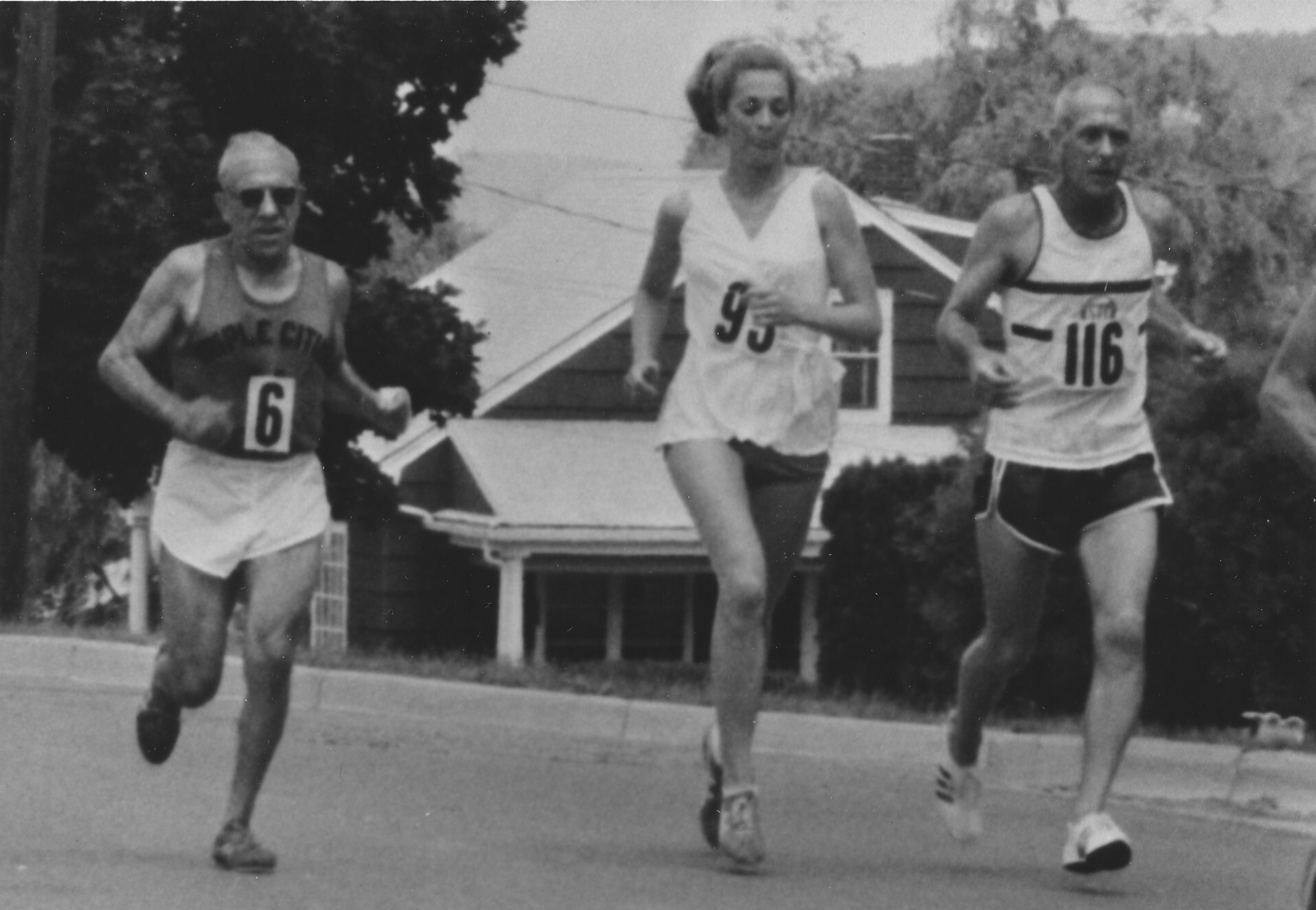
How are you helping women engage in sports in countries where that may be culturally challenging?
This is our biggest challenge and we are trying to overcome thousands of years of social, cultural, and religious beliefs and pressure. But if you run and feel empowered, you know it can’t be wrong. So one woman tells another, and we work as a non-judgemental, non-competitive group. And importantly: we give women a safe space. They know with us they have an hour or so a week when they can be free, and sometimes that’s all it takes to start a movement.
What is your running like today?
It’s slower, but it’s still pretty good! It’s still the best part of my day, and I still have a few marathons I want to do before I hang up my shoes. But, to tell you the truth, I’m never hanging up my shoes voluntarily..!!!
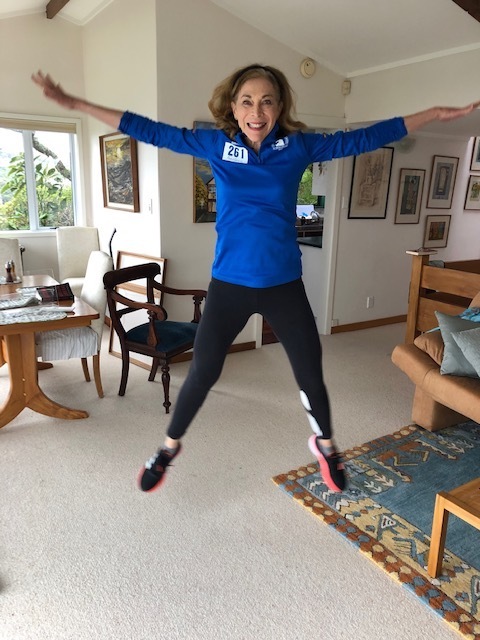
How do you recover today from athletic stress, like a long or difficult run?
Well, a cold beer really helps! But seriously, I run one day and walk/ do lots of exercises the other day. This allows me to recover and helps prevent overuse injuries. After a long run, I will take 2 or more easy days afterward, with lots of yoga-like stretches. When I get up to 4 & 5 hour runs in prep for a marathon, then I need more days of recovery. It’s a little diabolical — as I get older and slower, the long runs have to be a lot longer because I’m going slower and will be out on the marathon course longer. So, if a marathon used to take me, say, 3 hours to run, now it takes me almost 5 hours. So I need to replicate that in training…which means, really long, slow runs. I try to find soft surfaces (e.g. dirt trails) to reduce impact and also to immerse myself in nature.
How would you like to be remembered?
As a woman who helped to make positive change in women AND men globally.
What are the 3 non-negotiables in your life today?
Telling my husband I love him, being out in nature at least once a day, and a glass of milk every night.
LEAVE A REPLY
The ideas expressed here are solely the opinions of the author and are not researched or verified by AGEIST LLC, or anyone associated with AGEIST LLC. This material should not be construed as medical advice or recommendation, it is for informational use only. We encourage all readers to discuss with your qualified practitioners the relevance of the application of any of these ideas to your life. The recommendations contained herein are not intended to diagnose, treat, cure or prevent any disease. You should always consult your physician or other qualified health provider before starting any new treatment or stopping any treatment that has been prescribed for you by your physician or other qualified health provider. Please call your doctor or 911 immediately if you think you may have a medical or psychiatric emergency.


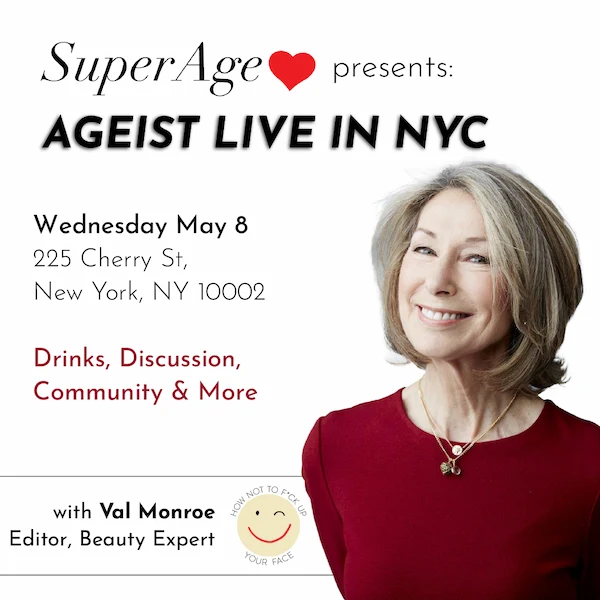
This is an amazing storey and as a women I am incredibly proud of Katherine, I am the same age and work physically hard each day as a gardener on my own acres and in two other gardens I take care of. I never think of stopping, like her I know I am doing things a bit slower but the plants don’t notice and the clients don’t care. The weather is a challenge in winter especially but I feel good when I come inside after hours in the elements, energised. I am always surprised when people want to talk about how demanding this property is, I just don’t see it that way, it’s the doing not the worrying that matters. Nature doesn’t care if I am there or not the plants will grow regardless, they will sequester carbon and pump out oxygen, I am just absorbed in the process by choice.
Thank you.
There’s no better recipe for aging gracefully, let’s be active and have fun till the end.